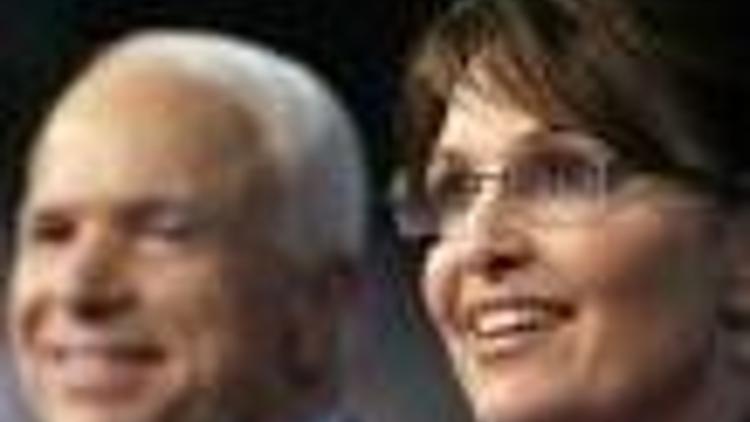U.S. media highlights risks of McCains VP pick
Güncelleme Tarihi:

Republican John McCain's shock choice of a youthful, female governor as his running mate was an image-making decision that could backfire before the November presidential vote, U.S. media said Saturday.
"With pick, McCain reclaims his maverick image," headlined the Washington Posts analysis the day after McCain announced that Alaska Governor Sarah Palin, a woman he met once before, would be his vice presidential choice.
The choice "helps McCain consolidate his party’s conservative base, which has been at best lukewarm toward his candidacy," noting that the right-wing Palin would assuage concerns about McCain’s centrist position on some issues.
"The governors conservative credentials are not in doubt, whether on abortion or gun rights or gay rights," the Post said, adding that the announcement "brought an outpouring of enthusiasm from the right flank" of the party.
The Los Angeles Times ran the banner headline: "McCains choice of Palin is a risk," and pointed to questions about his political aims as well as Palin’s ability to woo moderate to left-wing women who supported Hillary Clinton.
In his bid to "attract female voters and grab his campaign some Barack Obama-style media buzz, he also is taking a risk that in elevating a largely unknown figure, he undermines the central theme of his candidacy that he puts country first, above political calculations," the newspaper said.
The 72-year-old
One Republican strategist was quoted as calling it: "a very hyper-political decision. Obviously, he doesn’t have any history with Sarah Palin. He doesn’t know her. It seems to be a calculated push toward gaining women voters."
Palin, who at 44 is three years younger than McCain's Democratic rival for the White House, highlighted Hillary Clinton’s success among voters in the primary contest she lost to Obama, and vowed Friday to "shatter that glass ceiling once and for all."
But her ability -- as a mother of five who hunts, supports the gun lobby, and opposes abortion rights -- to connect to women who backed
"Whether Mrs. Palin can draw women away from the Democratic fold will be a major question throughout the campaign," the Times said, pointing out that even Democrat Geraldine Ferraros run for vice president in 1984 alongside Walter Mondale failed to win the women’s vote.
"As the first woman on a major party ticket, she and Walter Mondale lost the women’s vote by 12 percentage points to Ronald Reagan and George Bush," the Times wrote.

